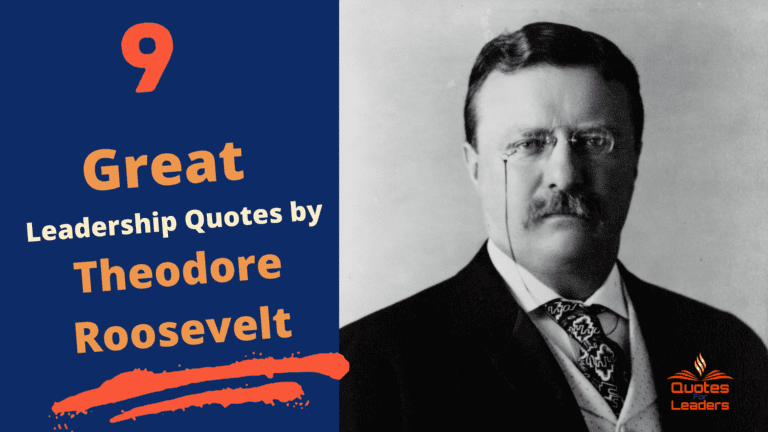Leadership Insights, Wisdom and Quotes from Sophocles

Today we’re offering leadership quotes and lessons from another influencer from antiquity: Sophocles.
Sophocles, a 5th-century BCE Greek dramatist, is regarded as one of history’s greatest tragedians. Although he is most known for his plays, many of his works feature timeless insights about leadership principles.
The value of humility and self-awareness is one of the primary lessons from Sophocles’ works. In a number of his plays, characters who are overly proud or arrogant suffer tragic consequences. This acts as a caution to leaders to be aware of their limitations and to avoid allowing their ego to prevent them from making sensible decisions.
Another theme emphasized by Sophocles is the significance of responsibility. In his plays, characters who fail to accept responsibility for their acts or who place the blame for their troubles on others are frequently punished severely. This reminds leaders that they must take responsibility for their judgments and be willing to admit errors.
Sophocles also emphasizes the significance of leadership and service. In his plays, the true heroes are frequently those who are unselfish and emphasize the welfare of others. Leaders should prioritize the needs of their team or organization over their own.
Sophocles concludes by emphasizing the significance of legacy and the influence our acts can have on future generations. Characters in his plays who act irresponsibly or selfishly frequently leave a terrible legacy that plagues them long after their deaths. Leaders must consider the impact of their decisions on the future and strive to leave a positive and enduring legacy.
Ultimately, the plays of Sophocles include instructive lessons for leaders regarding humility, duty, service, and legacy. Leaders can obtain a greater knowledge of these ideas and apply them to their leadership style by studying Sophocles’ works.
Below you’ll find key quotes from the works of Sophocles as well as an FAQ if you would like to know a little more about Sophocles. We’ve done our best to confirm the attributions in this article.
Enjoy!
Leadership
“Success is dependent on effort.” – Ajax
“One must learn by doing the thing, for though you think you know it, you have no certainty until you try.” – The Trachiniae
“To be doing good deeds is man’s most glorious task.” – Electra
“Fortune cannot aid those who do nothing.” – The Trachiniae
“All men make mistakes, but a good man yields when he knows his course is wrong, and repairs the evil.” – Antigone
“We must not believe that because ours is a world of expedients we ought to do what we have determined to do even if we have to kill others to do it.” – Antigone
“The keenest sorrow is to recognize ourselves as the sole cause of all our adversities.” – Philoctetes
“No man loves life like him that’s growing old.” – Oedipus at Colonus
“Quick decisions are unsafe decisions.” – Oedipus Rex
“A bad beginning makes a bad ending.” – Philoctetes
Integrity
“It is not always the same thing to be a good man and a good citizen.” – Antigone
“The greatest griefs are those we cause ourselves.” – Oedipus Rex
“Ignorant men don’t know what good they hold in their hands until they’ve flung it away.” – Antigone
“You should not consider a man’s age but his acts.” – Oedipus at Colonus
“The truth is always the strongest argument.” – Oedipus at Colonus
Wisdom
“You can’t teach an old dog new tricks.” – Phoenician Women
“One word frees us of all the weight and pain of life: That word is love.” – Oedipus at Colonus
“What people believe prevails over the truth.” – The Trachiniae
“There is no success without hardship.” – Oedipus Rex
FAQ – Sophocles & Leadership
Q: Who was Sophocles?
A: Sophocles was a Greek playwright who lived in the 5th century BCE. He is considered one of the greatest tragedians of all time and wrote more than 120 plays, although only seven have survived in their entirety.
Q: What are some of Sophocles’ most famous works?
A: Sophocles’ most famous plays include Oedipus Rex, Antigone, and Electra.
Q: What are some of the key themes in Sophocles’ works?
A: Some of the key themes in Sophocles’ works include the importance of humility and self-awareness, responsibility, service and leadership, and legacy.
Q: How do Sophocles’ works relate to leadership principles?
A: Sophocles’ works contain valuable insights into leadership principles. For example, his emphasis on humility and self-awareness serves as a reminder to leaders to be mindful of their limitations and avoid letting their egos get in the way of making wise decisions. His emphasis on responsibility serves as a reminder to leaders to take ownership of their decisions and be willing to admit when they are wrong. His emphasis on service and leadership serves as a reminder to leaders to focus on serving their team or organization rather than their self-interests. Finally, his emphasis on legacy serves as a reminder to leaders to think about the long-term impact of their decisions and work to create a positive and lasting legacy.
Q: How can leaders apply Sophocles’ leadership principles in their own lives?
A: Leaders can apply Sophocles’ leadership principles in a variety of ways, such as by practicing humility and self-awareness, taking responsibility for their decisions, focusing on serving their team or organization, and thinking about the long-term impact of their decisions. By studying Sophocles’ works and reflecting on these principles, leaders can gain a deeper understanding of effective leadership and apply these principles to their leadership style.
Recommended Reading
The Three Theban Plays: Antigone; Oedipus the King; Oedipus at Colonus (Amazon Link)
The Greek Plays: Sixteen Plays by Aeschylus, Sophocles, and Euripides (Amazon Link)
Sophocles I: Antigone, Oedipus the King, Oedipus at Colonus (The Complete Greek Tragedies) (Amazon Link)
Sophocles II: Ajax, The Women of Trachis, Electra, Philoctetes, The Trackers (The Complete Greek Tragedies) (Amazon Link)







